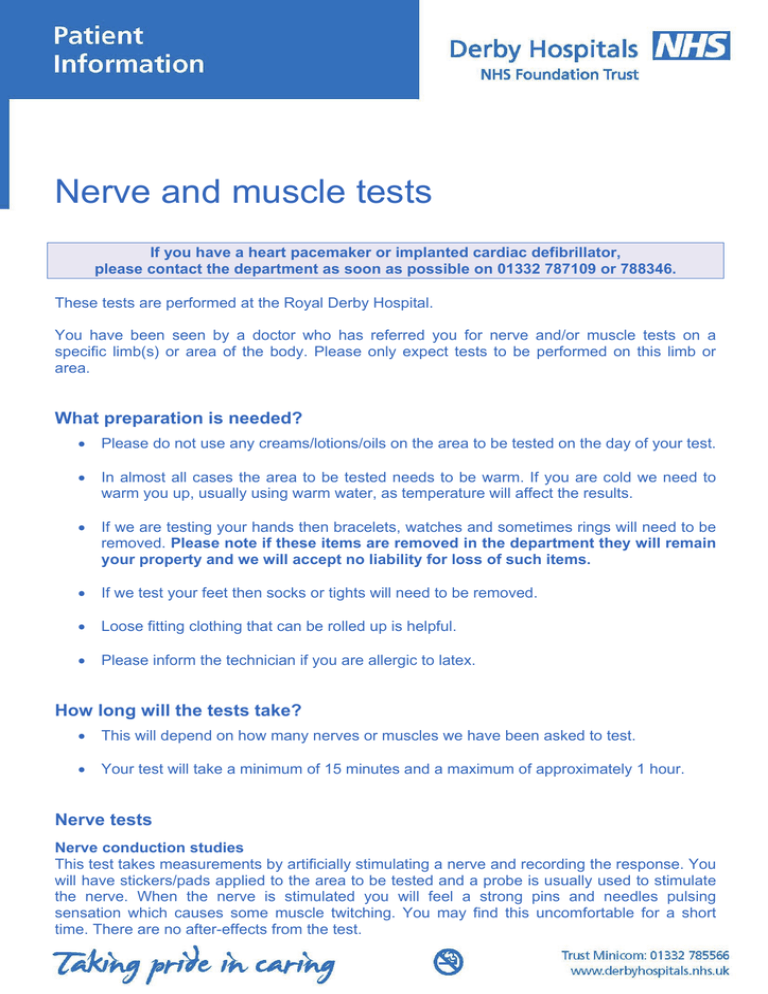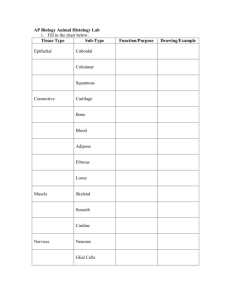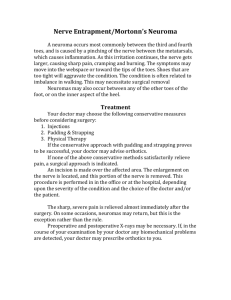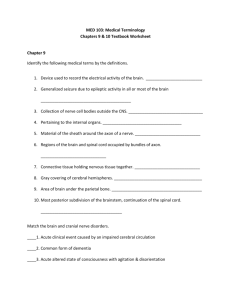
Nerve and muscle tests
If you have a heart pacemaker or implanted cardiac defibrillator,
please contact the department as soon as possible on 01332 787109 or 788346.
These tests are performed at the Royal Derby Hospital.
You have been seen by a doctor who has referred you for nerve and/or muscle tests on a
specific limb(s) or area of the body. Please only expect tests to be performed on this limb or
area.
What preparation is needed?
•
Please do not use any creams/lotions/oils on the area to be tested on the day of your test.
•
In almost all cases the area to be tested needs to be warm. If you are cold we need to
warm you up, usually using warm water, as temperature will affect the results.
•
If we are testing your hands then bracelets, watches and sometimes rings will need to be
removed. Please note if these items are removed in the department they will remain
your property and we will accept no liability for loss of such items.
•
If we test your feet then socks or tights will need to be removed.
•
Loose fitting clothing that can be rolled up is helpful.
•
Please inform the technician if you are allergic to latex.
How long will the tests take?
•
This will depend on how many nerves or muscles we have been asked to test.
•
Your test will take a minimum of 15 minutes and a maximum of approximately 1 hour.
Nerve tests
Nerve conduction studies
This test takes measurements by artificially stimulating a nerve and recording the response. You
will have stickers/pads applied to the area to be tested and a probe is usually used to stimulate
the nerve. When the nerve is stimulated you will feel a strong pins and needles pulsing
sensation which causes some muscle twitching. You may find this uncomfortable for a short
time. There are no after-effects from the test.
Muscle tests
Electromyography
Depending on the nature of your problem it may be necessary to record the naturally occurring
electrical activity within a muscle(s). This is done with a fine needle inserted into the muscle. The
small size of the needle means that it should not be too uncomfortable. As with all needles, this
can sometimes leave a bruise and the muscle may feel sore for a while after the test.
Benefits of these tests
These tests are a useful aid to the doctor referring you to assist with diagnosis of your problem.
Consequently this will guide appropriate treatment or management of the problem you have.
Alternative options
Your doctor has recommended these tests as being the best option.
There are no alternative tests available. However, there is always the option of not having the
tests at all. The consequence of this is that your doctor would have less information available to
help him/her decide on the best treatment for you. If you would like more information please
speak to your doctor or one of the nurses caring for you.
Results
There will be no result available on the day of the test as the recordings need to be analysed
and a full report will be sent to the doctor who referred you for the test.
If you have any questions, or concerns please contact the
Neurophysiology Department on 01332 787109 or 01332 788346.
Reference Code: P1538/0422/04.2014/VERSION7
© Copyright 2014 All rights reserved. No part of this publication may be reproduced in any form or by any means without prior
permission in writing from the Patient Information Service, Derby Hospitals NHS Foundation Trust. (P0813/12.2010/V6)





